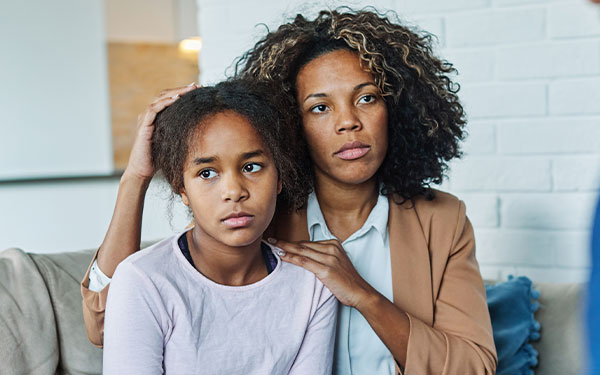Hi, I’m Kerry Graves. I specialize in helping individuals heal from the effects of childhood neglect and trauma. I also work with military veterans and active-duty service members to navigate traumatic experiences and PTSD. My approach combines compassionate therapy with education and real conversations about resilience, shared through my writings and podcast. If you’re looking for support or simply want to learn more, I’m here whenever you're ready to take the next step.
EXPERIENCE IN THE FIELD, EXPERIENCE IN ACADEMIA AND CLINICAL EXPERIENCE MATTERS!
CONTACT ME


ABOUT ME
I received my Bachelor’s degrees in Social Work from NC State University in 1999 and 2001, and went on to earn my Master’s Degree in Social Work from the University of North Carolina at Chapel Hill. I have served as a board member and committee volunteer (PAC and Legislative) for NASW-NC, and as both a board member and President of the APSAC Board. Currently, I enjoy my work as the Child Welfare Collaborative Coordinator and Lecturer in the Social Work Department at NC State University, as well as a Clinical Instructor with the UNC Chapel Hill FCRP Program.
I began working as a therapist in 2006, supporting children in the child welfare system who had experienced trauma. Since then, my work has expanded to include community-based therapy and clinical supervision. I have a passion for working with adolescents and young adults, using therapeutic approaches such as DBT, EMDR, Trauma-Focused Therapy, Play Therapy, and Psychoanalytic Therapy.
HOW IT WORKS
- Telehealth
- In-Person
SERVICES
- DBT
- EMDR
- Trauma Focused Therapy
- Play Therapy
- Psychoanalysis
- Ketamine Assisted Psychotherapy (KAP)
FEES
125/hr.
Sliding scale fee
BCBS
Aetna
For (KAP)

Supporting Military Veterans
When I first became a therapist, my Father who is a Marine told me something that had a profound effect on me. My Father has PTSD and unfortunately he got help long after he should have for a variety of reasons but he stated, "In your practice, please consider working with veterans because they need help asap as there are many places where they are turned away." He handed me a book about PTSD that was given to him by the VA and told me to review it and just think about what he had said.
As a 10 year Military Veteran, I understand the mental strain placed on veterans while they perform their duties in a variety of settings as well as after they get out. I'm here to listen, not judge and assist those military veterans who need that beacon of hope. I'm here to help veterans navigate their traumatic experiences and provide that shining light.
What Makes Me Different from a Mainstream Mental Health Therapist
I've been in the field of Social Work and Clinical Social Work since 1999, specifically child welfare and trauma. In addition to conducting child abuse and neglect investigations, I've provided mental health services for individuals who've suffered trauma while either in or out of the child welfare system. This led me to working at the Jordan Institute for Families in which I served as a Clinical instructor and taught social workers across the state of North Carolina about child welfare, child trauma, child mental health, child development and how to conduct sexual abuse investigations to name a few. Clinically, I don't prescribe to passive therapy and I allow my clients to think for themselves and make their own decisions as I won't demand what they should do. I'm upfront and no BS and like many, I've had my own experiences with Trauma.
1 . Trauma-Informed and Social Justice-Oriented
I don’t just treat symptoms — I look at the root causes. My approach integrates trauma-informed care with an awareness of systemic oppression, racial discrimination, and generational trauma. I acknowledge how societal structures impact mental health, especially for marginalized communities, and I center that in my therapeutic work.
2. Focus on Adverse Childhood Experiences (ACEs)
Unlike many therapists who may overlook early childhood adversity, I specialize in the long-term impact of ACEs on adolescents and young adults. My work doesn’t pathologize behavior but contextualizes it — understanding symptoms as survival responses to trauma.
3. Youth-Centered and Empowerment-Based
I work especially well with young people — I don’t see them as “problems to be fixed” but as resilient individuals navigating a complex world. I prioritize empowerment, voice, and agency in treatment, helping them build identity, self-worth, and healthy coping strategies.
4. Culturally Responsive and Reflective Practice
I actively engage in anti-oppressive work and cultural humility. I don’t assume a “one-size-fits-all” approach, and I’m always reflecting on how my own identities and biases may influence the space. I create therapy that is inclusive, affirming, and respectful of each client’s lived experience.
5. Advocate Beyond the Therapy Room
I don’t believe healing stops in the therapy room. I’m also an advocate in systems like education, child welfare, and policy spaces, working to challenge the very conditions that create trauma. I believe in healing justice and holistic wellness — not just individual treatment.